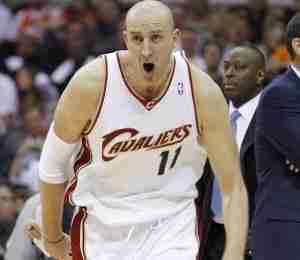78. Austin Carr
37. Larry Nance
10. Mark Price
Mark Price was a standout basketball player during his college years at Georgia Tech. However, despite being an All-American, scouts questioned his ability to play professionally because of his size and speed. Fortunately, he proved them wrong. He was drafted by the Dallas Mavericks in 1986 but was traded to the Cleveland Cavaliers on draft day, where he found his true calling.
Price's arrival in Cleveland coincided with the team's transformation from a mediocre squad to a legitimate contender. Along with teammates Brad Daugherty and Larry Nance, he helped lead the Cavaliers to the Eastern Conference Finals in 1992. However, their championship aspirations were dashed by Michael Jordan and the Chicago Bulls, who eliminated the Cavaliers four times in six years.
Despite this setback, Price's accomplishments on the court are undeniable. He was one of the best point guards in the league, known for his incredible passing skills, long-range jump shots, and ability to split double teams. He was also the second player after Larry Bird to join the exclusive "50-40-90 club," shooting 50 percent from the floor, 40 percent from behind the arc, and 90 percent from the free throw line.
In 1993, Price was named to the first team All-NBA and was a four-time All-Star. Unfortunately, his career was cut short by injuries, and his overall statistics may not be that impressive. However, his impact on the game of basketball cannot be denied. He will always be remembered as one of the greatest point guards of his era, and his legacy should be celebrated for years to come.
Should Mark Price be in the Hall of Fame?
4. Shawn Kemp
Shawn Kemp was one of the most popular and productive players of the 1990s. He came straight out of high school as Seattle’s First Round with the body of a Greek God and was considered one of the best pure athletes in the NBA. Kemp struggled as a rookie, but the Power Forward averaged over 15 Points and 9 Rebounds over the next two years while adopting the nickname of the “Reign Man,” one of the best nicknames of the sport.
Along with Gary Payton, Kemp and the SuperSonics emerged as contenders. Seattle won the Western Conference Finals, though they lost to Michael Jordan and the Chicago Bulls. Though Kemp did not win a title with Seattle, from 1992-93 to 1996-97m he was one of the best players in the game. In that five-year period, Kemp was a perennial All-Star, earned three Second Team All-NBAs and averaged well over a double-double with strong blocking numbers. The Cleveland Cavaliers traded for Kemp in 1997, but before long, it was evident he was not the same “Reign Man.”
Kemp was still a very good player in his first two years with the Cavaliers, adding a sixth All-Star in 1997-98, and had a career-high 20.5 Points per Game the year after. While he was still productive, his weight was becoming a problem, and as he got older, it became a bigger problem. Kemp was traded to Portland, and was unable to average 10 Points per Game and was demoted to the bench. He played two years there, then a final one in Orlando before he retored.
Kemp’s recent legal troubles involving a connection to a drive-by shooting won’t help his Hall of Fame cause, as did other past drug arrests, and his weight problems. That should not negate what he did accomplish on the court, which was very impressive.






